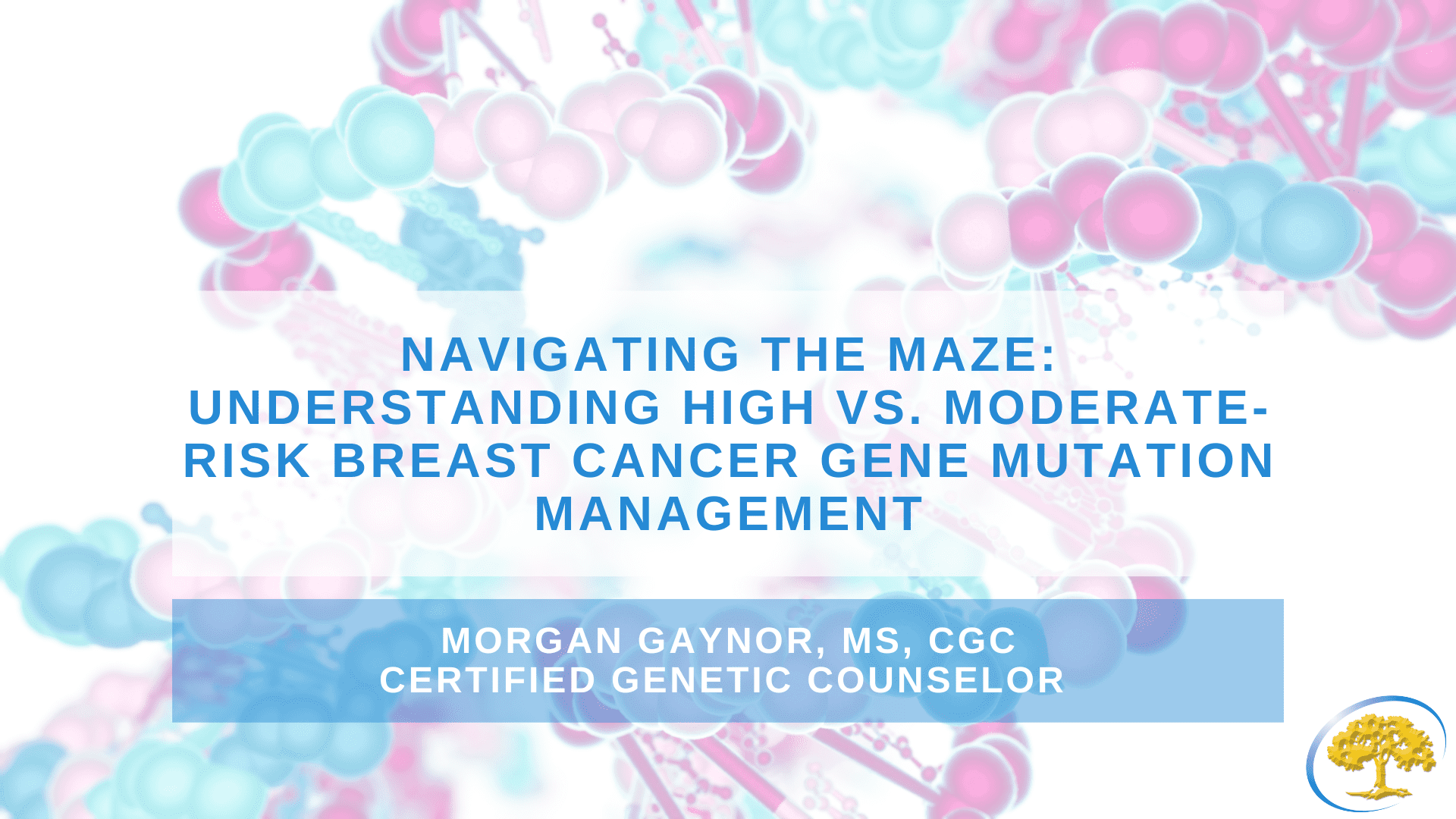
Posted 7 months ago
Navigating the Maze: Understanding High vs. Moderate-Risk Breast Cancer Gene Mutation Management
In breast cancer gene mutation management, the spotlight often falls on high-risk genes like BRCA1 and BRCA2. However, not all gene mutations are created equal, and there are many other breast cancer genes we can test for with different risks and their own unique list of management strategies. Understanding the risks associated with each specific breast cancer gene mutation is critical in developing a specific and effective management strategy.
Over the past decade, testing for breast cancer genes past BRCA1 and BRCA2 has expanded rapidly. Now, it is more common to order expanded genetic testing panels that look at many other genes, some with the same, higher, and or more moderate risks in comparison to the BRCA genes. Managing high-risk breast cancer gene mutations elicits a multifaceted approach aimed both at early detection and risk reduction. BRCA1 and BRCA2 fall into this high-risk category, as well as others, such as TP53, PALB2, PTEN, and CDH1. Regular screenings, such as mammograms, are typically initiated at an earlier age and conducted more frequently to catch any signs of cancer in its nascent stages. A bilateral mastectomy, which involves the removal of one or both breasts, is also typically recommended with these high-risk gene mutations. This surgery dramatically decreases the likelihood of developing breast cancer in patients with these high-risk gene mutations.
On the other hand, moderate-risk breast cancer genes still present an increased risk for breast cancer, but not as increased as the high-risk breast cancer gene mutations. Genes such as CHEK2, ATM, and BARD1 are some examples of moderate-risk breast cancer gene mutations where we do not typically recommend considering bilateral mastectomies. Instead, we usually focus on high-risk screening, including a mammogram and a breast MRI alternating every six months. However, in some rare cases, a bilateral mastectomy may still be considered based on personal and/or family history. Because of this, is essential to speak to your doctor and/or genetic counselor to see if these additional recommendations should still be made.
Understanding these distinctions between high-risk and moderate-risk breast cancer genes is critical to tailoring management plans that suit individual needs. It is also important to note that although this blog focuses specifically on breast cancer risk management, most gene mutations are associated with risks related to more than just one cancer. It is crucial to work closely with your healthcare providers to determine the most effective management plan based on your personal history, family history, and your gene mutation. If you have questions about high-risk vs. moderate-risk breast cancer gene mutations or other hereditary cancer predisposition syndromes, please speak to your Ironwood provider about a referral to Ironwood’s Genetic Services Department.
Morgan Gaynor, MS, CGC
Certified Genetic Counselor
Morgan Gaynor Joined Ironwood Cancer & Research Centers In May 2022. She Earned Her B.S. In Molecular Biology And Genetics From Regis University And Earned Her M.S. In Genetic Counseling From The University Of Arizona.
During Her Time At The University Of Arizona, Morgan Completed A Two-Year Graduate Program And A Thesis On Best Practices In Counseling Low-Level Pathogenicity Results In Cancer Genetics Settings. She Completed Clinical Rotations At Prominent Healthcare Systems Such As Banner, Mayo Clinic, Color Genomics, Phoenix Children’s Hospital, And Dignity Health. During Her Time At These Institutions, She Gained Experience In Prenatal, Cancer, Cardiology, Pediatrics, And Pharmacogenomics Counseling.
Morgan Enjoys Running, Swimming, Cycling, Playing Piano, Hiking, And Spending Time With Her Family.
Please ask your Ironwood Cancer & Research Centers doctor for a referral to see our genetic counselor.

